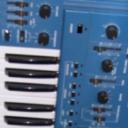Yahoo Answers is shutting down on May 4th, 2021 (Eastern Time) and beginning April 20th, 2021 (Eastern Time) the Yahoo Answers website will be in read-only mode. There will be no changes to other Yahoo properties or services, or your Yahoo account. You can find more information about the Yahoo Answers shutdown and how to download your data on this help page.
Trending News
My fellow brethren of the R&S section, what do you think of these scholarly articles?
They are a bit lengthy, but provide very detailed explanations that might clear up some notions that Christians and Atheists have about science and religion.
Here are the links:
4 Answers
- River EuphratesLv 74 years ago
It's not so much whether or not science can test the supernatural - it's just that science doesn't concern itself with the supernatural.
Science attempts to follow the evidence where it leads, whereas believers in the supernatural and/or religion attempt to make the evidence fit a pre-existing narrative.
- KeithLv 74 years ago
God's Word is considered Above His Name, so there is NOTHING that can persuade me that the Word of God is to be challenged successfully.
God's Integrity is not His Name but His Word.
- Uncle FesterLv 74 years ago
Jeez. I thought Jws left long posts. I will peruse it later when I get a chance, maybe.
Update. Ok I have spent about an hour on them. Certainly not enough to check all of the references or process all of the information in them. I am not an academic, I struggled with the Bayesian formula and it's application to the existence of God, perhaps with persistence I would understand them more fully, I have saved both articles.
I agree with the direction both articles are going in (well I suppose I would, I am an atheist) and there are some interesting points and arguments for the application of science to the supernatural. After all, if we could not investigate any phenomenon that was considered out of bounds due to "possible" supernatural involvement then we would still think lightning was caused by gods.
There are many good points in the articles, I think most of them are ones that make regular appearances here. The one that has stuck in my mind is "If religious people claim that gods have any impact on the natural world, then there should be empirical evidence". This clearly puts religion up as being testable using scientific methods.
There are worrying parts in the article too. I was not aware that any supposed scientific bodies supported the view that religion and the supernatural were off bounds as far as science was concerned. I guess a lot of that is due to not wishing to be associated with the many charlatan "investigators" in the field. The articles, certainly the second one, however, suggest that is it more to protect the sensibilities of believers. I guess there could be many disgruntled religious parents if offspring were asked to put their faith to the test, especially as it is specifically wrong according to some religious tomes. The poll of educators regarding the angel/plants experiment was telling. I hope that here in the UK things are different, perhaps not, I will ask my teacher friends about this when I meet them next. It may be that they have to be equally sensitive considering our PC culture.
As suggested in the second paper, there are possible entities that science may not have a useful application to. Deism, for example could propose a creator who left the universe to run on its own, with no involvement. Of course this would then mean that the creator would have no interest in what we thought of it, so it really would not matter if we treated it as nonexistent and, for all intents and purposes it may as well not exist.
Interesting articles, thank you.
- Anonymous4 years ago
attempting to apply the "scientific method" to the super natural is like trying to fix a rolex with a hammer
wrong tool.
You cannot perceive the supernatural with tools meant for discerning the natural (science)




